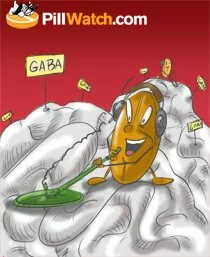
Anxiety is not a rare thing in the modern life, which is characterized with constant tension, strain, and rush. No wonder, many people cannot cope with such pressure by themselves and need to be professionally treated to overwhelm their fears, suppress their worrying, and get rid of anxiety.
The symptoms of the latter disorder are effectively eliminated with the help of benzodiazepines – medications, which are in great favor among many physicians due to the low rates of side effects produced and high levels of efficacy.
Benzodiazepines are mild tranquilizers used on the short-term basis for anxiety elimination. They work in the brain affecting GABAa receptors, thus having sedative and relaxing effects on the nervous system and producing anticonvulsant activity on the muscles.
Since the 50th – when the first representative of the class of benzodiazepines was introduced to the public – scientists had developed a number of “benzo medications”. Among the most popular and often prescribed drugs are Xanax (alprazolam) and Ativan (lorazepam).
The most common side effects of Xanax are: feeling dizzy, tired and sleepy; appetite and sleep changes; headaches; urination problems; decreased libido, blurred vision and slurred speech. Although most patients experience the suppression of the central nervous system, some develop hyperactivity, characterized with the absence of the feeling of danger and fear. In rare cases suicidal thoughts may appear.
Contraindications include people suffering from allergy to benzodiazepines, narrow angle glaucoma, sleep apnea, lung, liver, and kidney diseases, pregnant and breastfeeding women. Seniors are usually recommended to take smaller doses of the drug in order to avoid side effects; at the same time, effectiveness is not decreased.
Ativan has been used for the treatment of anxiety symptoms since 1971. It is also helpful as an adjunct in chemotherapy. Its half life is 10-12 hours; thus, it is an intermediate benzodiazepine in comparison to the short alprazolam.
Weakness and confusion are the most often experienced side effects during Ativan therapy. However, a patient may notice a lot of other adverse reactions, including fainting and hallucinations, which are the same as those provoked by Xanax.
A patient is not advised to take Ativan if he is currently using barbiturates, antidepressants (especially MAO inhibitors), narcotic medicines, and drugs to treat psychiatric disorders. The same drug interactions are observed with Xanax. In addition, oral contraceptives may increase benzodiazepines activity; thus, such combination should be used with caution.
Ativan contraindications include the same cases as Xanax. However, it is necessary to underline that psychotic patients are not recommended to use it not to experience the aggravation of such symptoms as agitation and rage.

It should be noted that these drugs become very dangerous if mixed with alcohol, potentially leading to coma and death, the same as their overdose. Less serious symptoms of overdose are extreme muscle weakness, loss of coordination and reflexes, and shallow breathing.
A very important thing one should know about benzodiazepines is that they are habit forming, that is why treatment period is usually limited to short time. In order to avoid withdrawal symptoms, therapy is ended gradually lowering the dose of the drug. In fact, the development of drug dependence is the most serious weak-point of benzodiazepines; however, their efficacy in treating anxiety is out of doubts. No wonder these medications are so widely used nowadays.
| Tip for you : Sign-in with Your OpenID and post faster, easier and with easy access to all your past posts. | |
|
Your Nick: |
















